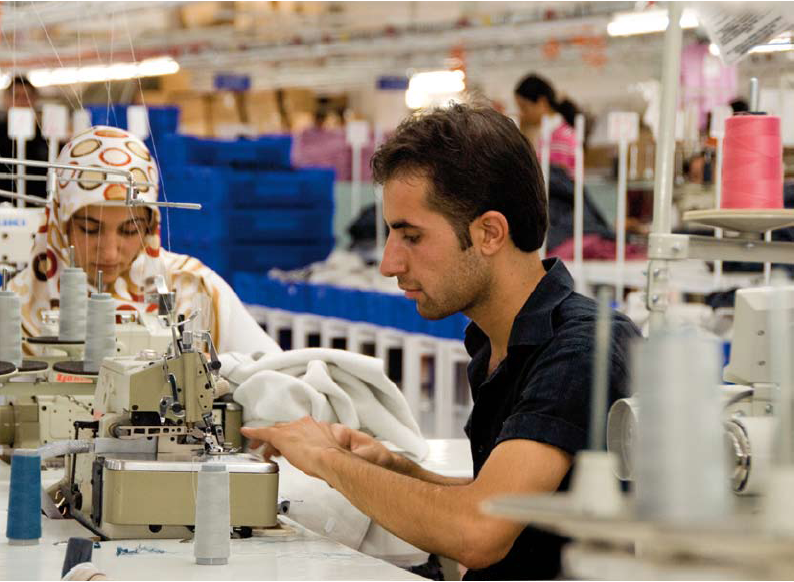

Transforming Turkish Textiles

Aiming to transform the Turkish textile sector into a competitive industry, a new UN Joint Programme will enhance the international competitiveness of SMEs in the textile and clothing sector of Turkey. Launched in early November, “Harnessing Sustainable Linkages for Small and Medium Enterprises in Turkey’s Textile Sector” will concentrate specifically on SMEs located in poor and vulnerable regions such as Gaziantep, Kahramanmaraş, Adıyaman, and Malatya, the programme and integrate them into the global and domestic value chains, providing job for millions residing in these regions.
Speaking at the launch event, UNDP Resident Representative Ulrika Richardson-Golinski explained: “The JP will help the local business community reach a state of “responsible competitiveness” and “decent work environment”, involving both upgrading the productivity and market access of firms in poor regions, as well as benefiting local disadvantaged communities and populations, especially women who have registered labour participation rate lower than 5% in the target region of the programme.”
President of the General Secretariat of the Istanbul Textile and Apparel Exporters’ Associations (İTKİB) Hikmet Tanriverdi drew attention to gender inequalities within the general social environment at Turkey’s SMEs. He said: “To ensure sustainable development, we will try to overcome challenges presented by gender inequality and the feudal structure.”
In order to overcome these challenges, the project will attempt to equip employees in the sector with knowledge and tools to integrate into national and international value chains through capacity building efforts on clustering, business linkage development and effective use of ICTs; as well as through activation of an innovative ICT based Value Chain Management Platform (VCMP).
Moroever, a wider uptake of Corporate Social Responsibility (CSR) amongst textile and apparel companies and in relevant government policies will be promoted through sector assessments, the development of tools, guiding materials and case studies and sector specific CSR trainings on gender sensitive, social and environmental conduct, sustainable development and MDGs. The Programme is run jointly with the General Secretariat of the Istanbul Textile and Apparel Exporters’ Associations (İTKİB) and funded by Spain through the Millennium Development Goals Achievement Fund (MDG-F) which was entrusted to the United Nations by the Government of Spain.
UN agencies taking part in the implementation of the programme are UNDP, UNIDO and ILO. The programme is expected to begin in January 2010. Small and Medium Enterprises (SMEs) in Turkey’s textile sector are one of the major contributors to the Turkish economy in terms of enriching GDP, generating employment and increasing net exports. There are approximately 40,000 companies in the sector (mostly SMEs), employing an estimated 2 million workers.
Despite its potential, the sector presents major drawbacks which impede progress. Currently, the textile industry suffers from increased input costs and cannot compete in international markets unless a strategy is adopted towards utilization of technological tools to establish supply chain coordination and raise awareness of the impact of corporate social responsibility.
To top it off, the global financial crisis has also burdened the sector. However, important improvements can be made by identifying new comparative advantages to ensure the Turkish textile sector is more productive, innovative and responsive to the requirements of consumers in developed and emerging markets so that it can reach EU standards and bring larger benefits to the economy.